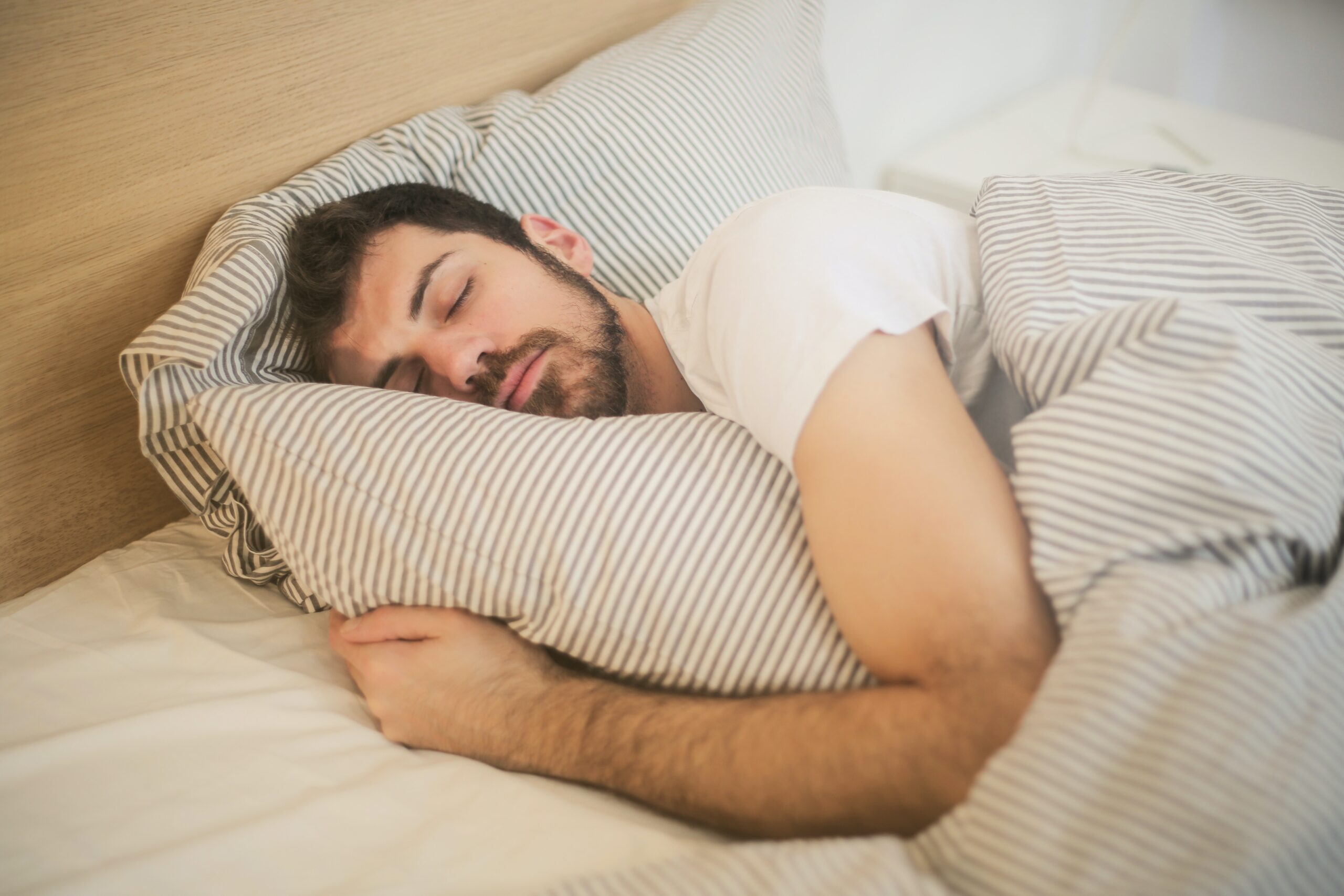Sleep
While it may seem like a waste of time to spend an entire third of your life in bed, sleep is absolutely fundamental to human health. If you have experienced the aftermath of a sleepless night, you can testify to the importance of quality sleep.
What is Sleep?
Sleep is broadly defined as a period in which there is a loss of behavioral control and consciousness according to a daily circadian rhythm. The exact neurological underpinnings behind why sleep is so integral to our health are still debated, but some things have become clearer over the years. Most scientists agree that sleep is responsible for collecting, consolidating, and processing memory. The consolidation of memories transform them from loose, momentary thoughts into stable long-term memory, woven deep into the fabric of the memory network. The reason that it is beneficial for the brain to be unconscious during this memory inscribing period is so that the sensitive encoding process does not become confused by an outside stimulus. During waking, the brain is then able to easily retrieve memories that have been written and archived while asleep.
Because of its interconnectedness with memory formation, sleep has long been believed to facilitate insight. Blinded studies done by the Department of Neurology at the University of Lübeck have shown that quality sleep more than doubles the chance for a person’s insight on a given task. It should therefore not be so surprising that Nobel Prize winner Otto Loewi awoke with the idea for his Nobel lecture on chemical neurotransmission. Similarly, famous chemist and inventor Dmitri Mendeleev woke from a dream with the idea for Periodic Law, the principle that governs the construction of a periodic table of elements ordered by atomic mass.

But further research has shown that you don’t even need a nightly eight hours of sleep to reap the benefits of sleep’s memory-boosting abilities. Shorter naps of 1-2 hours as well as 6-minute “micro-naps” have also shown to significantly affect memory retention.
Insomnia
Adverse health effects start to come into the picture when the amount of sleep you’re getting day to day diminishes in both quality and quantity. Insomnia describes both a difficulty falling asleep and staying asleep without frequent nocturnal disturbances.
Acute insomnia is generally brief and caused by concrete life stressors or emotional triggers, whereas chronic insomnia is long-lasting, occurs 3 or more times a week, and lasts up to 3 months. Chronic insomnia can have any number of causes, including clinical disorders, medication interactions, endocrine problems (especially hyperthroid), chronic pain, asthma, gastrointestinal problems, and Parkinson’s disease, among many others.
Sleep Apnea
Sleep apnea is closely tied to insomnia and involves airways becoming partially or completely collapsed during sleep, leading to pauses in normal breathing, a sudden fall in blood oxygen levels, and repeated wakefulness that might occur after gasping or choking sensations. Thankfully, physicians can diagnose sleep disorders like sleep apnea in a clinical sleep study, and treat the condition with dietary and exercise changes as well as recommending a CPAP (continuous positive airway pressure) machine for easier breathing.
Left untreated, the health effects of insomnia can be overwhelming. Debilitating fatigue, drastic weight shifts, cardiovascular issues, difficulty concentrating, wild mood swings, and a variety of mental health concerns all commonly accompany extended periods of insomnia.
If no underlying medical cause is found to be responsible for a person’s insomnia, there are several healthy bedtime habits that can treat chronic sleep trouble:
- Avoid light
Especially blue-tinted light from screens, phones, and tablets before bed can play a huge role in reminding the brain that it’s time to sleep. The artificial lighting on screens late at night can trick the brain’s natural circadian rhythm and convince you–at least subconsciously–that it’s still daytime and time to be awake.
- Take a warm bath or shower
Before bed warm water can help to prep you physically for falling asleep. Besides warm steam and aromatic soap being comfortable and soothing, bathing also forces the body to thermoregulate to a cooler temperature to accommodate for the hot water. When we are sleeping, the body naturally cools down, so this change in temperature can help to stimulate sleepiness.
- Avoid caffeine
This one might be a no-brainer, but avoiding caffeine sources like coffee, tea, and chocolate in the afternoon and before bed help to keep the mind calm. Caffeine is a powerful stimulant and can stay active in the brain for up to eight hours after consumption.
- Avoid alcohol
Though it might initially feel like a sedative, actually disrupts the normal sleep cycle in the middle of the night and is not recommended before bed.
- What you eat:
foods that are disruptive to sleep include spicy foods–which may contribute to gastric acid re-flux–and heavy meals in general.
With all that said, it’s important to remember that, as an adult, getting between 7-9 hours of good, uninterrupted sleep every night is essential to preventing many types of chronic disease, memory issues, and daytime fatigue. Find the sleep schedule and bedtime rituals that work best for you, and catch up on some healthy Z’s!








